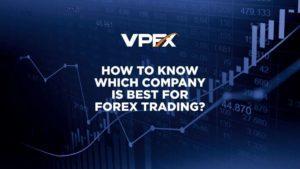With over 10,000 stocks and ETFs available via VPFX, its stock market offers several chances for each trader. Follow these stage process instructions to begin purchasing and trading stocks, no matter your experience level.
1. Become Familiar with The Functioning of The Stock Exchange
Like auctions, the equity market involves sellers and buyers negotiating a price at which they are equally comfortable trading a commodity, in this instance, shares of corporations. Initial public offerings, sometimes known as IPOs, are how businesses that need money sell their shares on the market (IPO). Retail investors & institutions may begin trading the shares once the company’s stock becomes publicly traded.
People will purchase a firm’s shares from a stock trading platform they think will see rapid development, ideally at a discount, so they can resell them for a profit in the future. People anticipating problems for a corporation would sell the stock, hoping to get the most money possible so that they could benefit or lose money.
To trade on the market, you must be registered; thus, most individuals will use the best brokers for stock trading. When dealing with leverage, your supplier will act as a broker by initiating and closing trades per your instructions. Most retail share market now occurs online via a multi-regulated trading broker.
What Influences Share Prices?
A firm will first decide on an original cost from its shares on a stock market. The demand and availability for stock then fluctuate, resulting in price adjustments for the shares.
The company’s stock is never in unlimited supply. To limit supply, a corporation may issue new shares or rebuy shares from shareholders, but the total amount of outstanding stock is always available.
Demand will increase, and the cost of the shares will go up when there are more significant buyers than sellers in the market. On the other hand, the share price would drop if additional sellers were on the market, indicating a dip in demand.
The market for a share may fluctuate with time for a variety of reasons, such as:
Reports On Earnings
Once a quarterly, companies often provide interim financial progress reports and release comprehensive reports earlier each year. Because investors and traders use financial metrics like sales, profit, and per-share earnings (EPS) in their fundamental analyses, they impact the firm’s stock price.
Financial Information
A company’s growth will be impacted by the status of the market in which it works. Robust data may lead corporate share prices to climb, while insufficient data can drive them to drop. Data releases like gross national product (GDP) & sales could substantially impact company stock values.
Finance Charges
When interest rates are high, people may conserve money instead of taking significant risks, leading to a decline in stock market investments. Therefore, the demand for stocks may decrease if it seems that a central bank will increase interest rates.
Market Stance
Fundamental analysis is not usually the driving force behind share price changes, and demand may change according to public opinion and market players’ opinions about a specific stock. Speculation bubbles are created in this way.
2. Recognize the distinction between investing in shares and stock speculation.
Before you may invest in a share, it’s critical to comprehend the differences between buying a share or trading on its price fluctuations. The primary distinctions between these two approaches are the length of time their positions were maintained and how money is made.
Acquiring Shares
In the belief that their value will rise and they may be sold for just a profit in the future, traders purchase shares outright. They adhere to the classic maxim of going long or buying cheap and selling higher. To benefit from both share price increases and dividend payments, dealers could also hold the position over a more significant period.
Shares may be purchased via VPFX, the stock trading platform by:
Trading Stocks
You could own the share as a result of this. You can often only invest in long positions; however, if dividends are given, you will profit from them.
Trading using ETFs Such funds may be used to simultaneously hold many shares, including as full indexes or industry sectors.
Speculating On An Equity Price
Traders use derivative goods, and they get their worth from the price of the primary market. With this, traders may benefit from dropping and increasing costs even though they will not have shareholders’ interests or get dividends since they are not required to hold the shares. Traders often keep positions for a medium to a short period and concentrate on minor market swings.
Shares May Be Traded Via VPFX By:
Trading specific shares before and after market hours is possible with CFDs. You may also go short or long. CFD trading involves using leverage.
3. Create an Investment Strategy
Because it will clearly state your objectives, the amount of cash you have available, and your level of risk tolerance, a robust trading strategy may be pretty helpful for trading stocks or investing. A trading strategy’s purpose is to provide structure when you initiate and finish positions while removing emotion from your judgment.
4. Recognize the Dangers and Expenses
Your risk while owning a share is always constrained to your original investment. Even if the value of the shares dropped to zero and you invested $1,000, the most you could lose is $1,000. In addition, there is a price for leaving and entering each position. Such long-term benefits may be offset by the exorbitant fees that certain brokers pay investors. In contrast, VPFX charges £8 for the UK share trading and 0% cost for US stock trades, as many as ten trades each month. Trading entails a variety of quite diverse dangers. Leverage is a characteristic of CFDs that allows traders to create a strategy for just a proportion of what investors are needed to deposit initially. While using leverage might increase your earnings, it can also increase your losses.
Traders have instruments to control this risk, including such prevention, which lets them specify the moment at which a transaction should be abandoned if it moves in the other direction. Slippage, or even the difference between the price requested and the price that the provider can complete the transaction at due to market volatility, may affect regular & trailing stops. Attaching a confirmed stop-loss, however, will safeguard future slippage. Instead of charging you up in advance as other suppliers do, VPFX is the best brokers for stock trading, and it only charges you a small fee if the assured stop is activated.





